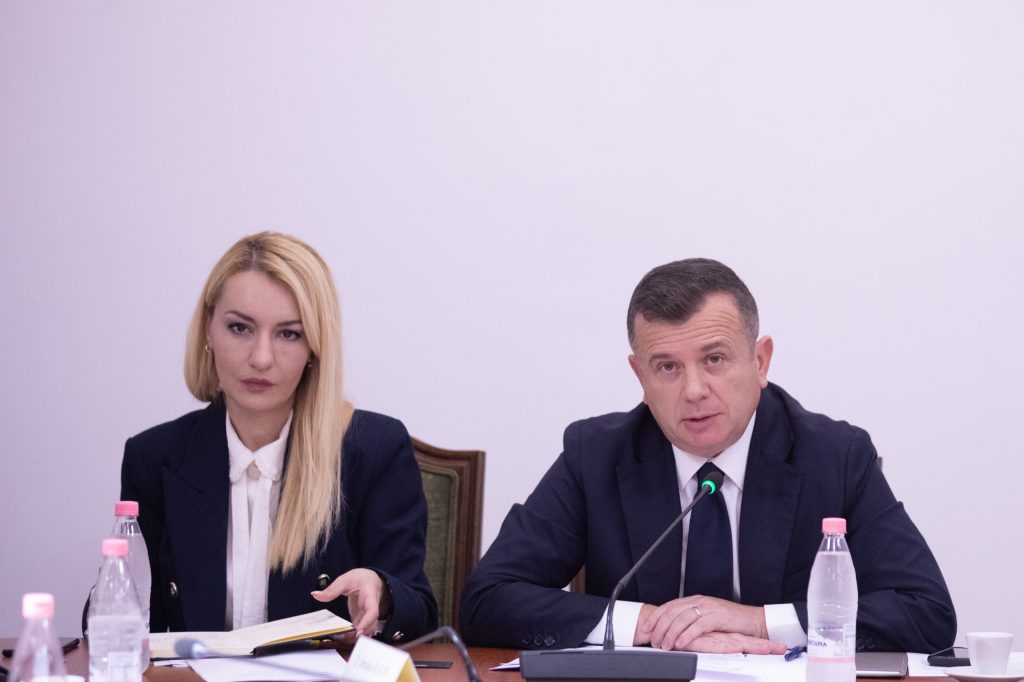The Interior Minister, Taulant Balla, responded to the Commission for European Affairs’ query on the process of free movement within the Western Balkans based on the agreement on the freedom of movement with an Identity Card. Balla stated that the agreement has been fulfilled and now the focus must shift towards consolidation.
Minister Balla provided a thorough overview of the key elements of the agreement, including its objectives, benefits, and challenges. The Minister also emphasized the implications of executing the agreement in practice, given the unique characteristics of the systems and procedures employed by each state involved.
The minister provided a timeline for the agreement and the participating states, noting it as a diplomatic initiative for expanding the EU to Western Balkan countries, known as the Berlin Process.
The minister stated that the agreement on freedom of movement with an Identity Card in the Western Balkans was signed in Berlin on 3rd November 2022 and came into effect on 1st June 2023. The Berlin process began with a high-level conference in Berlin on 28th August 2014. It is a diplomatic initiative aimed at expanding the European Union with Western Balkan countries such as Albania, Serbia, Kosovo, North Macedonia, Montenegro, and Bosnia and Herzegovina.
“The Facilitated Movement agreement allows identity card holders to easily move between the six Western Balkan countries, creating a more united and well-connected region with increased benefits for citizens.
Balla highlighted North Macedonia as a case with concrete problems related to implementing the agreement, specifically with regards to differing identification systems at border points.”
One issue faced at the BCP is standardizing the identification of travellers crossing the border, as different systems are used.
For instance, in our case with North Macedonia, we use a distinct system from Albania’s TIMS system. At this stage, it is impossible to unify the systems. Therefore, I would like to clarify to citizens that delays have occurred despite the application of the “one stop shop” principle, where there is a single check. The problem persists because each citizen passing through must be entered into both Albania and North Macedonia systems. Even though we have implemented this form of control, delays still occurred. During my discussions with Minister Spasovski, we implemented a form of “free movement” during times of delay. This involved registering only the license plates of vehicles passing through, without exercising any control. We did so in accordance with the obligations set out in agreements made with third parties.
Balla confirmed that Albania has fulfilled its obligations under this agreement.
“In reference to the critical aspect of the Berlin Process, concerning the liberation of movement, it is my belief that we have attained the necessary stage of completion. The requirement now is to reinforce its execution, specifically in relation to the suppression of illicit activities, such as arms trafficking,” affirmed the Minister.
Balla discussed the issue of illegal migration and the fight against criminal networks attempting to develop clandestine traffic. He stated that the most challenging issue is the use of the Western Balkans for illegal immigration routes and that increased cooperation between the countries within the region is necessary to address this problem. He stated that the most challenging issue is the use of the Western Balkans for illegal immigration routes and that increased cooperation between the countries within the region is necessary to address this problem. He stated that the most challenging issue is the use of the Western Balkans for illegal immigration routes and that increased cooperation between the countries within the region is necessary to address this problem. While Albania has also been used as a transit country, the numbers are lower compared to other countries in the area. The State Police has targeted multiple criminal groups who exploit this opportunity to make money. The police collaborate with the special structure against corruption and organized crime, as well as with the general jurisdiction prosecutors to combat any type of corridor or traffic network that facilitates illegal migration of citizens from African or Asian countries into the EU.
The minister stated that Albania consistently plays a vital and constructive role in the region, with a primary interest in creating a stable environment where peace, socio-economic and cultural relations, and mutually beneficial relationships with neighboring countries thrive.
“Building strong relationships and collaborating with neighbouring countries and particularly those in the Western Balkans remains a top priority of Albanian foreign policy, particularly in the context of EU integration,” highlighted Balla.







